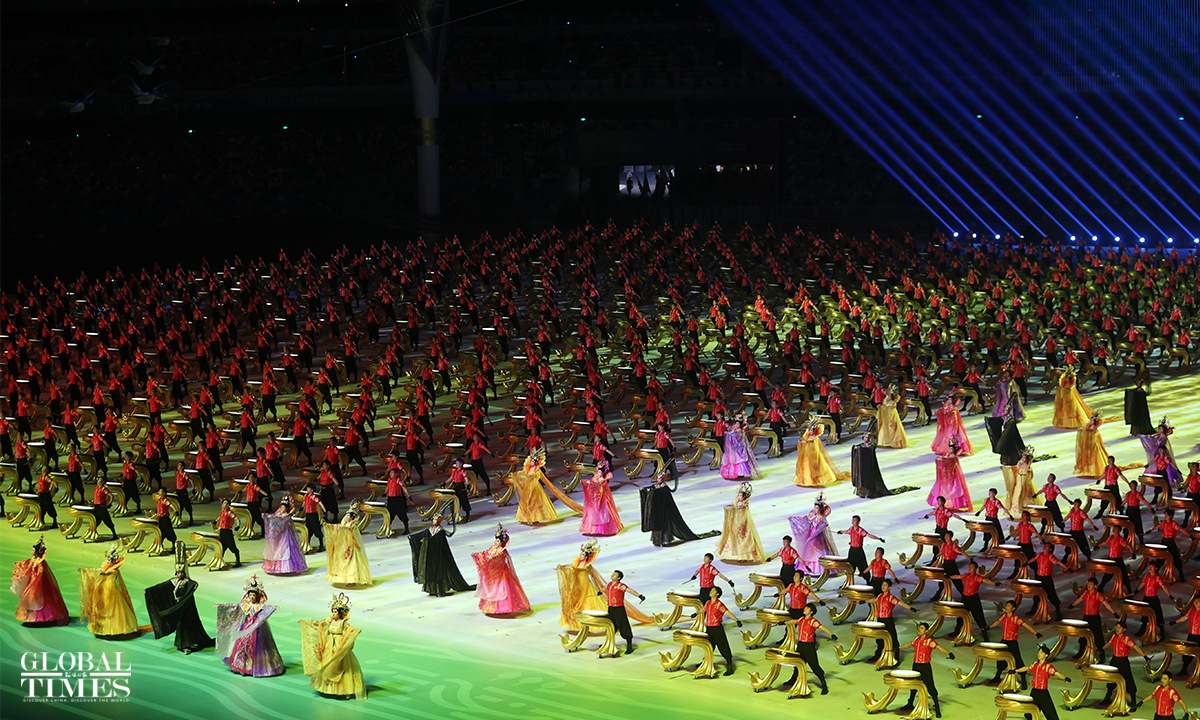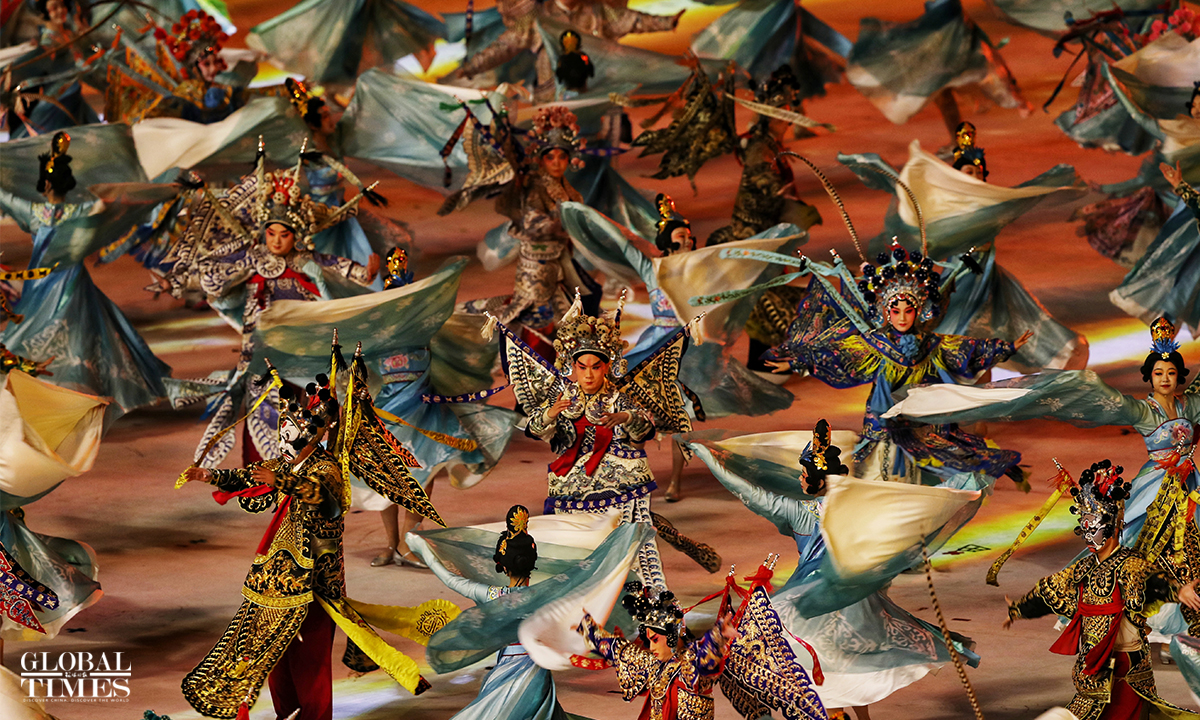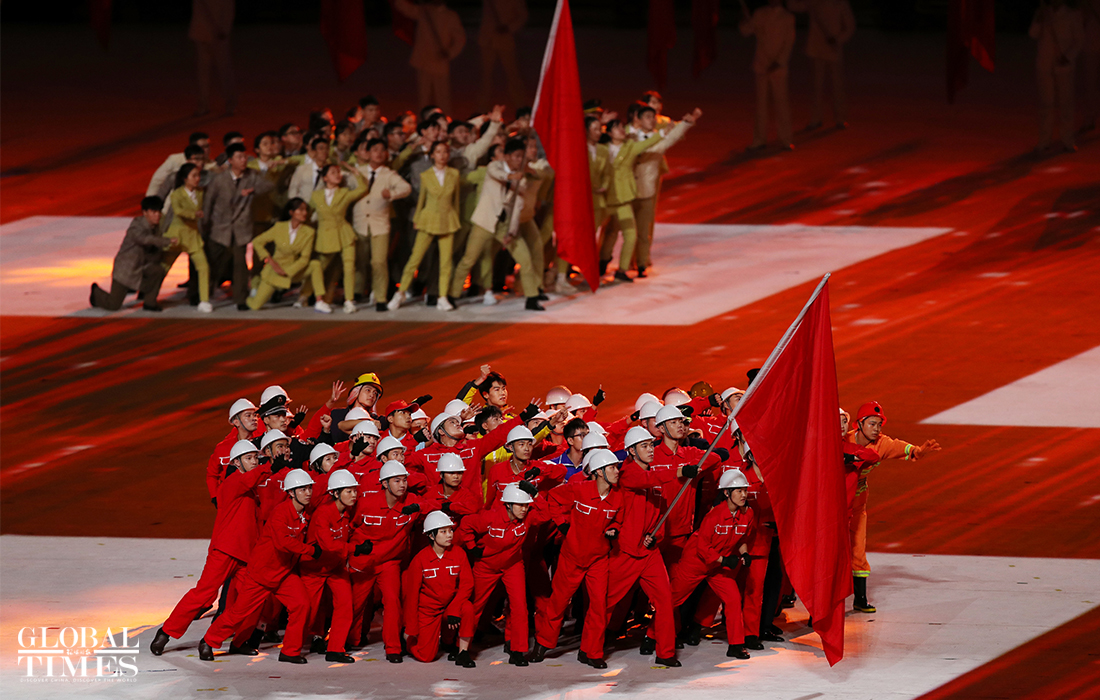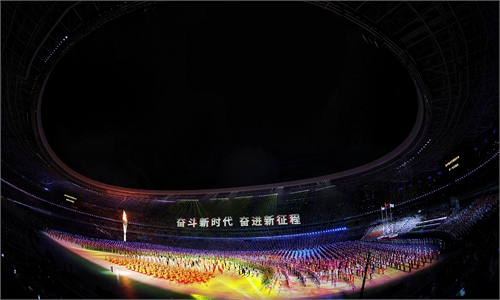SPORT / MISCELLANY
Opening ceremony showcases Shaanxi’s distinctive cultural history

Photo: Cui Meng/GT
The opening ceremony of China's 14th National Games was held in Xi'an, capital city of Northwest China's Shaanxi Province, on Wednesday. Launched in one of China's most culturally and historically rich cities, the opening ceremony brought several highlight moments that combined the sporting spirit with Shaanxi's red and folk culture.As Shaanxi Province is known as a birthplace of the "red culture," the opening ceremony adopted the promotion of sports for the public to celebrate the 100th anniversary of the founding of the Communist Party of China (CPC) as its main theme.
The three segments - National Roots, Yan'an Spirit, and Chinese Dream - that made up the art performance in the ceremony defined how red culture symbolized resilience, national pride, while the consistent pursuit of greatness reflected sporting spirit.

Photo: Cui Meng/GT
The first segment illustrated Chinese cultural roots, with performers wearing ancient Chinese clothes interpreting the history of Qin Dynasty, and also dancing in the Tang Dynasty style. Today's Xi'an, which was then called Chang'an, was the capital of the Tang Dynasty.
Yan'an Spirit put on a performance recapping the Long March, when Red Army soldiers left their bases and marched to break the siege of the Kuomintang forces from 1934 to 1936. The chapter exhibits the resilience and bravery of the CPC and also introduced Yan'an, the city seen as the cradle of the Chinese revolution, to the world.
The highlight of Chinese Dream was the dance performance of the Crested Ibis, a very rare bird chosen as the 2021 National Games' mascot.
At the ceremony, another highlight that stunned netizens was the performance of Qinqiang, a genre of folk Chinese opera that originated in Shaanxi Province dating back to the Qin era, and which is now a national intangible cultural heritage.
The powerful and distinctive tones and singing styles of Qinqiang at the ceremony impressed many netizens, who used terms such as "grandeur," "diversity of Chinese culture," and "cultural confidence" to describe it.
"Qinqiang is known for its rugged and down-to-earth sound that comes from the locals' everyday lives. This type of 'local art' shows how diverse Chinese folk arts are, and showing it on such a big stage also illustrates our cultural confidence," Wang Xueying, a cultural observer, told the Global Times on Thursday.

Photo: Cui Meng/GT



